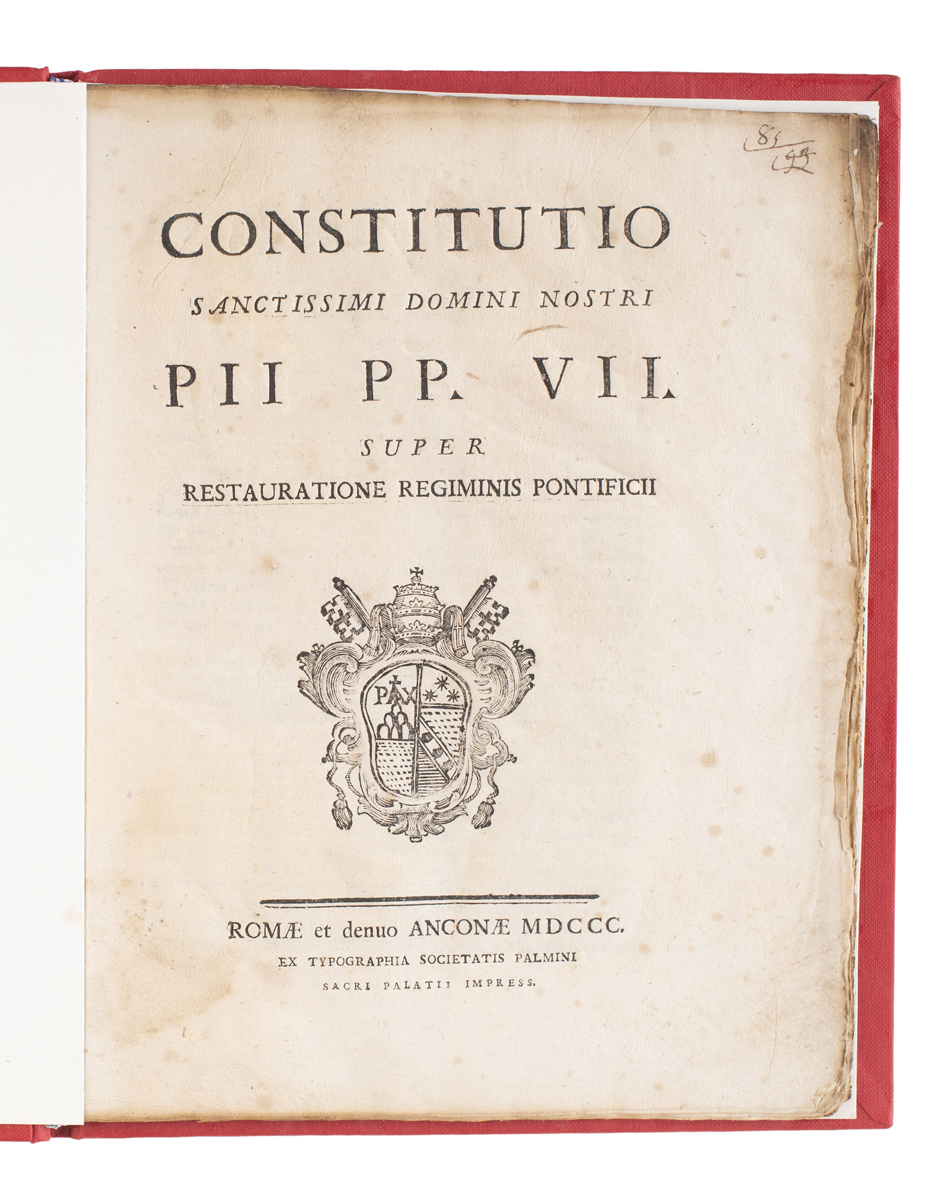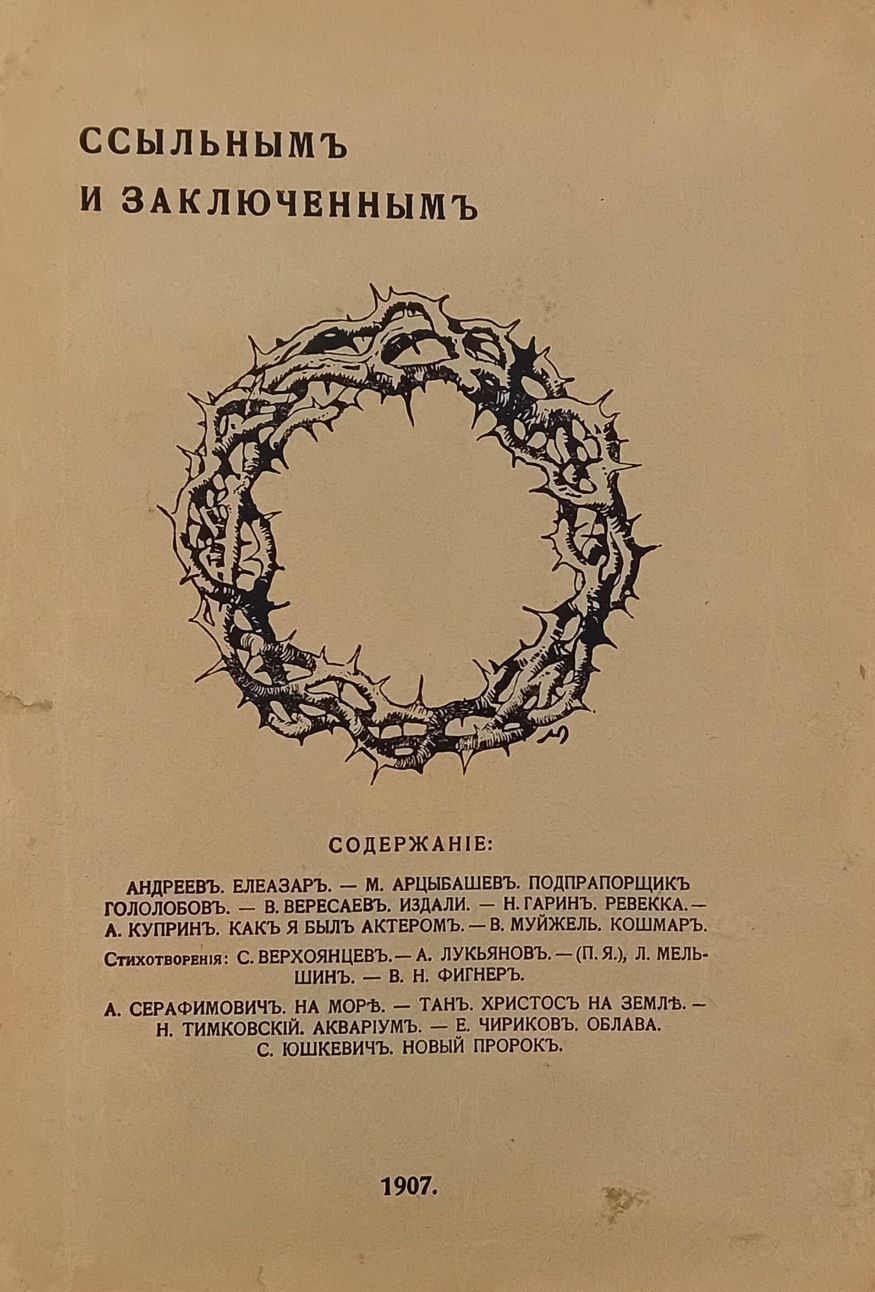ELLIS, Charles Thomas.
Practical Remarks and Precedents of Proceedings in Parliament; comprising the Standing Orders of both Houses, to the end of the year 1801; relative to the applying for, and passing, bills for inclosing or draining lands; making turnpike roads, navigations, aqueducts; building bridges; for the more easy recovery of small debts; paving, &c. towns; confirming or prolonging the term of letters patent; obtaining divorces; and bills called estate bills: with an introductory chapter, containing practical directions for soliciting private bills in general; and with occasional references to acts of Parliament, adjudged cases, &c.
London, Brooke and Rider et al., 1802.
8vo, pp. xiv, [2] errata, 266; a fine, uncut and unopened copy in the original boards, contemporary MS lettering to spine.
Added to your basket:
Practical Remarks and Precedents of Proceedings in Parliament; comprising the Standing Orders of both Houses, to the end of the year 1801; relative to the applying for, and passing, bills for inclosing or draining lands; making turnpike roads, navigations, aqueducts; building bridges; for the more easy recovery of small debts; paving, &c. towns; confirming or prolonging the term of letters patent; obtaining divorces; and bills called estate bills: with an introductory chapter, containing practical directions for soliciting private bills in general; and with occasional references to acts of Parliament, adjudged cases, &c.
First edition of the earliest comprehensive treatment of the important subject of private bill legislation, being a greatly revised and enlarged version of the author’s Solicitor’s Instructor in Parliament concerning Estate and Inclosure Bills (1799). Further, updated editions and supplements were published down to 1813.
By the turn of the nineteenth century, dramatic changes resulting from economic development and population growth in Britain had created considerable pressure for improvement of the infrastructure and local administration of society. There was no impetus towards nationwide action by the state until much later, while existing local authorities were inadequate for the task. Much of the onus of meeting new demands for investment in and management of infrastructural projects therefore fell to local parties acting privately. ‘Private’ or ‘local’ (as opposed to ‘public general’) legislation, to promote individual projects of land enclosure, transportation, drainage, town improvements, social policy, and so on, took on a new importance.
The present work by Charles Thomas Ellis was of great service in providing, for the first time, a practical guide to the rules governing parliamentary private business, which had evolved rapidly in the preceding few decades. Its publication coincided with moves to establish a better means of coping with the ever-increasing flow of private business in Parliament. A Select Committee Report on the matter in 1810 (the first of ten such reports by 1847) led to the establishment of the Private Bill Office at Westminster, after which lawyers acting as external parliamentary agents – among whom Ellis was a pioneer – began to take over the drafting of legislation from the parliamentary clerks.
See Sidney and Beatrice Webb, English Local Government: Statutory Authorities for Special Purposes (1922), p. 5n, where the present book is cited first in a chronological list of publications on the subject; The History of Parliament. The House of Commons, 1790–1820, ed. R. G. Thorne, vol. I, pp. 335 and 339. For a recent historical work stressing the importance of private acts in the evolution of English local government, see John Prest, Liberty and Locality (1990).
Sweet and Maxwell III, 71; cf. Marvin, p. 291 (the 1810 edition).

